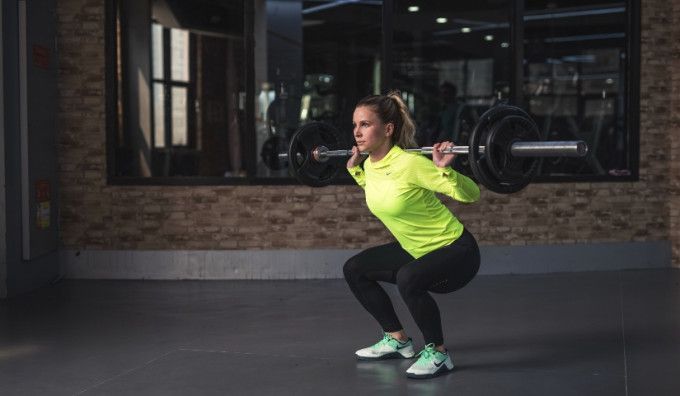
Growing Old Gracefully: How To Age Well
By Neesha Desai, Pharmacist (GPhC 2071387)
In 1962 the average life expectancy for men was 68.1 while women could expect to live six years longer. Fast forward 55 years and the UK Office for National Statistics now puts life expectancy rates at 79.4 and 83.1 respectively. This is great news for us all, as medical advances mean that survival rates from serious illnesses like cancer and heart disease continue to improve, but it also means that the older generation needs to learn how to ‘age well’ by delaying the onset of chronic degenerative conditions.
Common conditions that affect older people include joint pain, heart and lung problems, and high cholesterol – which jeopardises heart health. These conditions are often not life threatening, but do have a significant impact on quality of life. From reduced mobility to breathlessness and problems related to bad circulation, many older people find they can’t enjoy their golden years in the way they’d hoped.
While genetics often play a role in these illnesses, lifestyle factors have a huge influence too and there are many steps we can take to reduce our chances of getting diagnosed with these chronic conditions. More and more, the medical profession are realising how much impact a healthy lifestyle can have on our chances of developing various illnesses including cancer. So it’s really important to start making the necessary changes as early as possible to really benefit in your old age.
So what should you do to minimise your risk?
Eat A Healthy Diet
Over the last few decades it has become widely recognised that certain foods cause your body long-term harm – for example high sugar foods can lead to diabetes and processed red meat increases the risk of certain cancers – while other foods can help protect the body.
Foods rich in antioxidants – like brightly coloured fruit and vegetables – can help counteract the negative effects of oxidative stress. And foods high in essential fatty acids (EFA) – like oily fish, nuts & seeds, and avocado – help replenish the body’s cells – from the joints to the brain. So it is really important to avoid the unhealthy foods and eat lots of the nutritious foods every day.
Take The Right Supplements
As you age, your body becomes less efficient at producing essential substances and absorbing nutrients from food. In some cases – such as vitamin D for bone health – it also needs extra nutritional support to limit natural degeneration. Therefore, it is a good idea for older people to take ageing supplements with specific nutrients. Remember to always check the quality of the ingredients and the absorption rates before you choose a product, as this makes a huge difference to the benefits they bring.
Supplements For Joint Pain
Weight bearing joints like hips, knees and ankles are subject to wear and tear as you get older, with the connective tissue between the joints – the cartilage – thinning and sometimes breaking away from the bone. This can lead to inflammation of the joint, and cause significant pain.
There are three nutrients that have been identified as providing joint support – glucosamine, MSM and chondroitin. These are difficult to get from your diet, so it makes sense to take these as a supplement. Always choose a product that provides glucosamine in hydrochloride form, as it’s gentler on your stomach.
Supplements For High Cholesterol
Plant sterols are considered to be the most effective single food that can lower bad cholesterol as they mimic its behaviour, and compete for absorption into the body. While some foods do contain plant sterols, it’s hard to get the required amount this way. When deciding on a supplement, choose one with a potency guarantee and ideally dairy free.
Super Supplements For Healthy Ageing
There are certain nutrients that are vital for healthy ageing, and it can be reassuring to take these as a supplement as well as making an effort to include them in your diet. For example, a daily fish oil supplement or antioxidant combination ensures you are getting a regular dose of these supportive nutrients. And taking a vitamin D supplement with calcium and magnesium gives your bones nourishment throughout the year.
Introduce An Exercise Regime
The body is designed to move, so exercise is important at every age. But traditionally people have ‘slowed down’ as they’ve got older, choosing more sedentary lifestyles. Without regular movement, joints stiffen up, muscles weaken – including the heart muscle – and blood doesn’t flow as efficiently. This leads to joint pain, breathlessness and difficulty moving – which of course makes the situation worse.
So it’s important to keep up your exercise regime irrespective of your age. Whether you choose swimming, walking, cycling or zumba – make sure your body gets at least 30 minutes exercise every day.
Increasing life expectancy from decade to decade should always be something to celebrate rather than fear. And a few simple steps to healthy ageing can make sure that’s exactly how you feel.
Disclaimer
The products offered are not intended to diagnose, treat, cure, or prevent any illness or disease, or to replace the advice of a medical professional. Results are not guaranteed and may vary from individual to individual.




